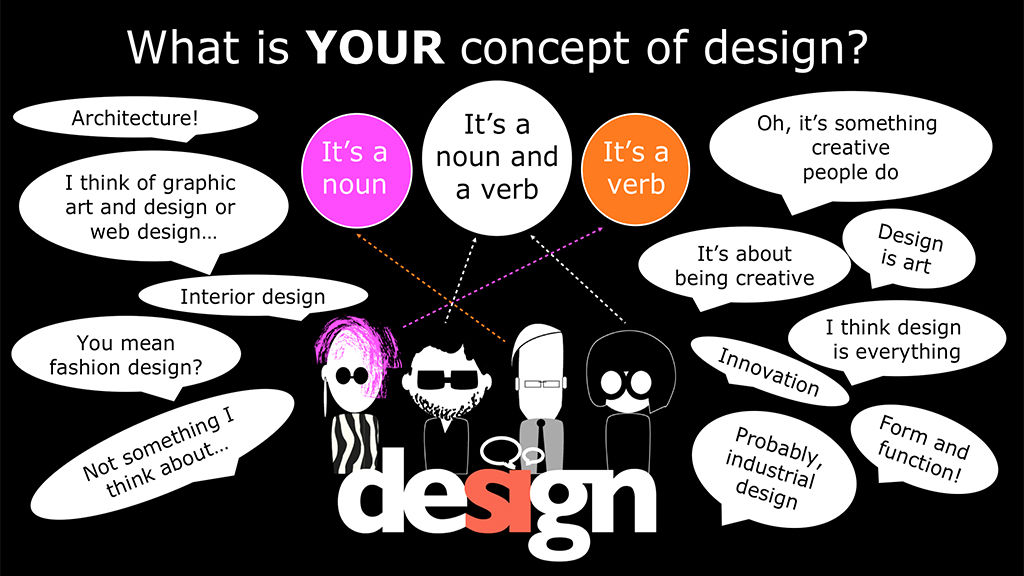I knew from the age of 11 years that my goal was to design.
I wanted to be a fashion designer. Back then, I didn’t know what design involved, but I knew it was my future.
I am not sure where my inner conviction came from, but I do remember that it was robust enough to ignore the dismissive attitude of my then high school career adviser. Exactly what was said I don’t remember, but I do know there were unspoken words. My impression was that “design” and (are you serious?) “fashion design” was not a “real” career option. That occasion was an introduction and not the only time in my subsequent design career that I have experienced people’s mixed reactions to design.
Design jobs. Design courses. “I am a designer”. What does it mean?
One of the criticisms levelled at design is that many individuals don’t know what people who design actually do. The word “design” appears to have no value. In English “design” is both a verb, “to design” and a noun, “the design”. Despite this, it is apparent that some people love the concept of design.
Design for them is the glue that creates the world we live in, the good and the bad. Yes, I confess, I am in this group.
Then, there are the people who feel that design is “only” something related to creativity, art or aesthetics, “Oh, there are so many more important things”. Sometimes, people are indifferent, “Design? Never really thought about it”; “A Ph.D. about design? Why?”
When people call themselves “architect” or “engineer”, we instinctively know they have completed a level of required study. This is unlike design, where a designer does not have universal acceptance, is certainly not academically recognised nor are most of them accorded high status or economic value.
When I first started teaching at the university in 2001, I was teaching Multimedia Design to students in the IT school. Multimedia Design is the creation of something using a variety of media such as images, sound and animation, hence the term ‘multi’. At the time, many of the IT staff didn’t acknowledge Multimedia Design (it was before the iPhone, after all). Some openly disregarded it. I was keen to be accepted and found myself thinking, wow, if they react like this to multimedia design then I am definitively not mentioning my fashion background!
Now, in 2016, I can’t help but wonder why it has taken me so long to mentally reframe my thinking. Other people’s responses have obviously impacted my own thinking towards design. Looking back, if there was an issue about multimedia, fashion or design perhaps I was affected because I did not personally value the design knowledge and skills I had…
So is there an issue with design that begins with peoples’ perceptions of it?
I started by asking my students what their perception of design is. The answers begin to chart the way. My research is investigating the assumptions people make about the concept of “design”. In a nutshell, I am comparing the reactions and assumptions of people who don’t work with design with those who do.
For instance, my research shows that if someone is familiar with graphic design, they are likely to assume design is about visual aesthetics. Whereas, a field such as engineering focuses on developing solutions to problems, such as designing bridges so the relevance of graphics is not a consideration for them. Fashion design, software design, industrial design and more currently, user experience design, interface design…the list goes on, all with different understanding.
Even the design disciplines don’t always agree on the meaning and value of design.
What is your concept of design?
I find it fascinating that the definition of design can create such a diverse range of reactions in so many people.
While writing this blog post I had the huge realisation that all the different reactions I have personally experienced in my relatively successful design career are actually the catalyst for my Ph.D. journey.
I wonder what my high school career adviser would think about that?
Yours in design
Jan
Image source: Janet Jervis (original design)
